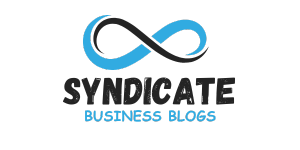
Top Personal Finance Strategy in 2025: Expert Tips for Financial Success
In an era marked by rapid economic shifts and technological advancements, establishing a robust personal finance strategy has never been more vital. The year 2025 presents a unique blend of challenges and opportunities—from fluctuating interest rates to a dynamic job market and innovative financial technologies. In this article, we will explore the ten most effective personal finance strategies for 2025, equipping you with actionable insights to navigate the financial landscape and build a secure future.
Why a Personal Finance Strategy is Critical in 2025
As we face a year of economic unpredictability, developing a solid personal finance strategy is essential for ensuring long-term financial health and resilience. Factors such as inflation, volatile markets, and rising living costs highlight the necessity for a thoughtful approach to managing your finances. A personalized financial strategy not only helps you avoid common pitfalls but also empowers you to make informed decisions and lays out a clear roadmap for achieving your financial aspirations.
Top 10 Personal Finance Strategies for 2025
- Budgeting
Creating a comprehensive budget is the backbone of any personal finance plan. By categorizing expenses, tracking spending patterns, and setting realistic financial goals, you’ll understand your cash flow better and identify areas where you can cut costs. In 2025, with rising costs of living and economic uncertainties, budgeting becomes even more critical. Start by identifying all income sources, including side income, and allocate spending into essential and discretionary categories.
Take advantage of modern budgeting apps that integrate AI-driven insights, allowing real-time tracking of your expenses and spending habits. Ideally, your budget should also allocate portions for savings, debt repayment, and investments, ensuring a balanced approach. Consider reviewing your budget monthly to adjust as necessary to keep up with changes in your Personal Finance Strategy situation. - Investing with Diversification
Building a diversified investment portfolio is crucial for growth and stability. For 2025, consider a balanced mix of stocks, bonds, ETFs, and real estate. Explore emerging sectors, such as clean energy or tech, that show strong growth potential. Take advantage of robo-advisors, which provide automated portfolio management based on your risk tolerance, and consider consulting a financial advisor for a more personalized approach. - Saving for Short and Long-Term Goals
Saving consistently for both short and long-term goals is essential to a sound financial plan. Create an emergency fund to cover 3-6 months’ worth of living expenses; this helps protect you from unexpected expenses without resorting to high-interest debt. Look into high-yield savings accounts to make the most of your funds.
Automated saving can simplify this process by allocating a set amount directly to your savings account each month. For larger purchases, like a home or a significant investment, begin saving early, even in small amounts. For retirement savings, consider tax-advantaged accounts like a 401(k) or IRA and maximize contributions as much as possible. Consistent saving, especially in accounts with favorable interest rates, ensures a steady path toward your financial objectives. - Debt Management and Reduction
High-interest debt can hinder financial progress, so managing and reducing debt should be a priority. In 2025, with possible interest rate hikes, staying ahead of debt management is critical. Start by listing all your debts, including credit cards and loans, and determine the interest rate on each.
You can use the “debt snowball” method—focusing on the smallest debts first to build momentum—or the “debt avalanche” method, targeting high-interest debts first for maximum savings. If debt becomes overwhelming, look into consolidating or refinancing to secure lower interest rates, or consider negotiating with creditors. Effective debt management not only enhances financial stability but also frees up resources for achieving more ambitious financial goals. - Insurance as a Safety Net
Comprehensive insurance coverage is a crucial element in safeguarding your financial health. In 2025, as uncertainties abound, it’s imperative to regularly assess your insurance policies. Consider the following types of insurance to enhance your protection:- Health Insurance: Ensure you have a robust health plan that covers a wide range of medical services, including preventive care, specialist visits, and emergency services. Look for plans with a health savings account (HSA) option, which allows you to save for medical expenses tax-free.
- Life Insurance: Evaluate your life insurance needs based on your family’s financial situation. Term life insurance can provide affordable coverage for a specific period, while whole life insurance offers lifelong protection with a savings component. Ensure your coverage amount aligns with your family’s long-term financial needs.
- Disability Insurance: Protect your income by securing disability insurance that will provide financial support if you are unable to work due to illness or injury. Consider both short-term and long-term disability coverage to fully safeguard your income.
- Property Insurance: Whether you own or rent, having adequate property insurance is essential. Homeowners should consider policies that cover both the structure and personal belongings, while renters should ensure they have renters insurance to protect their possessions.
- Umbrella Insurance: As your net worth increases, umbrella insurance can offer additional liability coverage beyond the limits of your other policies. This extra layer of protection can be crucial in safeguarding your assets in case of unexpected legal claims.
- Retirement Planning with Tax Efficiency
Strategic retirement planning is key to ensuring you have the resources needed for a comfortable retirement. In 2025, it’s vital to focus on both contributions and tax efficiency:- Maximize Contributions: Take full advantage of contribution limits for retirement accounts like 401(k)s and IRAs. For 2025, consider increasing your contributions as your income grows. The more you contribute, the greater your potential for tax-deferred growth.
- Employer Matching: If your employer offers a matching contribution, ensure you contribute enough to receive the full match. This is essentially free money and can significantly enhance your retirement savings.
- Tax-Advantaged Accounts: Explore various retirement accounts, such as traditional IRAs, Roth IRAs, and solo 401(k)s. Each has different tax implications; for instance, Roth IRAs allow for tax-free withdrawals in retirement, making them a valuable tool for long-term tax planning.
- Withdrawal Strategy: As retirement approaches, develop a withdrawal strategy that minimizes tax liabilities. Consider withdrawing from taxable accounts first, followed by tax-deferred accounts, to manage your taxable income in retirement effectively.
- Estate Planning for Future Generations
Estate planning is not just for the wealthy; it’s essential for anyone who wants to ensure their assets are distributed according to their wishes. In 2025, focus on the following elements:- Create a Will: A legally binding will outlines your wishes regarding asset distribution, guardianship for minor children, and funeral arrangements. Ensure it is updated regularly to reflect any significant life changes.
- Establish a Trust: Consider setting up a living trust to manage your assets while you are alive and to facilitate a smooth transfer to your beneficiaries after your death. Trusts can help avoid probate, reduce estate taxes, and provide more control over how and when your assets are distributed.
- Power of Attorney: Designate a trusted person as your power of attorney for financial and medical decisions. This person will have the authority to make decisions on your behalf if you become incapacitated.
- Healthcare Directive: A healthcare directive (or living will) outlines your medical preferences in case you cannot communicate your wishes. This ensures your healthcare decisions align with your values and desires.
- Tax Optimization to Keep More of Your Income
Effective tax planning can significantly enhance your disposable income, making it a critical component of your financial strategy in 2025:- Tax Loss Harvesting: If you have investments in taxable accounts, consider selling underperforming investments to offset gains realized on other investments. This strategy can reduce your overall tax liability.
- Maximize Deductions: Familiarize yourself with available deductions, such as those for mortgage interest, property taxes, and charitable contributions. Itemizing your deductions may yield a greater tax benefit than taking the standard deduction.
- Retirement Contributions: Contributions to tax-advantaged retirement accounts can reduce your taxable income. Explore options such as health savings accounts (HSAs) and flexible spending accounts (FSAs) to further reduce your tax burden.
- Tax Credits: Research potential tax credits available for education, energy-efficient home improvements, and child care expenses. Unlike deductions, tax credits reduce your tax bill dollar-for-dollar, making them more valuable.
- Consult a Tax Professional: As tax laws change, it can be beneficial to work with a tax professional who can provide personalized advice and strategies tailored to your unique financial situation.
- Financial Education for Smart Decision-Making
Staying informed about financial trends and strategies is a proactive way to protect and grow wealth. Financial literacy improves decision-making skills and prepares you to adapt to economic changes. Here are some practical ways to enhance your financial education:- Online Courses and Workshops: Enroll in online courses or attend workshops focused on personal finance topics such as budgeting, investing, and retirement planning. Many reputable platforms offer free or low-cost resources that can significantly enhance your knowledge.
- Podcasts and Webinars: Listen to financial podcasts or attend webinars hosted by financial experts. These platforms often provide valuable insights into current financial trends, investment strategies, and personal finance tips.
- Books and Articles: Read books and articles written by respected financial authors. Topics can range from basic financial literacy to advanced investment strategies. Look for recommendations from trusted sources to ensure quality information.
- Community Resources: Take advantage of community resources such as financial literacy programs or seminars hosted by local organizations. Engaging with your community can provide access to valuable knowledge and networking opportunities.
- Mentorship: Seek mentorship from individuals who have successfully navigated personal finance challenges. Learning from their experiences can provide practical insights and inspire you to take actionable steps toward your financial goals.
- Seeking Professional Financial Advice
Partnering with a financial advisor can offer a personalized perspective on complex financial decisions. Many advisors specialize in niche areas such as tax planning, investment strategy, or retirement, making it easier to find an expert suited to your needs. In 2025, consider the following when seeking financial advice:

- Identify Your Goals: Before consulting an advisor, outline your financial goals, whether they involve retirement, buying a home, or saving for education. Having clear objectives helps you find an advisor who aligns with your vision.
- Check Credentials: Look for financial advisors with relevant credentials, such as Certified Financial Planner (CFP) or Chartered Financial Analyst (CFA). These designations indicate a high level of expertise and ethical standards.
- Fee Structure: Understand the fee structure of potential advisors. Some charge a flat fee, while others work on a commission basis. Choose a structure that aligns with your preferences and financial situation.
- Interview Multiple Advisors: Don’t hesitate to meet with several advisors before making a decision. Ask about their investment philosophy, approach to risk, and how they plan to help you achieve your goals.
- Continuous Communication: Once you select an advisor, maintain open communication. Regular check-ins can ensure that your financial strategy remains aligned with your evolving goals and circumstances.
Additional Tips for Financial Success in 2025
In addition to these strategies, here are some extra tips to help you thrive financially:
- Leverage Technology: The finance sector has seen an influx of AI-driven apps and tools that can help you manage your finances more effectively. Use budgeting and investment apps to gain insights into your spending habits and track your progress toward financial goals.
- Stay Adaptable: The financial landscape is constantly changing, so be prepared to adapt your strategies as needed. Keep an eye on market trends and adjust your investment portfolio accordingly.
- Network and Collaborate: Engage with financial communities, whether online or offline, to share insights and learn from others. Networking can provide valuable information and resources to enhance your financial literacy.
By implementing these personal finance strategies for 2025, you can take control of your financial future, build wealth, and achieve your financial goals with confidence. Remember that consistency and continuous learning are key components of financial success.
- USAA Renters Insurance Your Stress Free Coverage for the Unexpected
- Youi Car Insurance Reviewed – Benefits Drawbacks & What to Know
- Humana Gold Plus HMO What You Really Need to Know
- MyCoverageInfo Agent – Your Guide to the Agent Portal & Why It Matters
- The Smart Guide to Home and Auto Insurance Protecting What Moves You and What Grounds You




